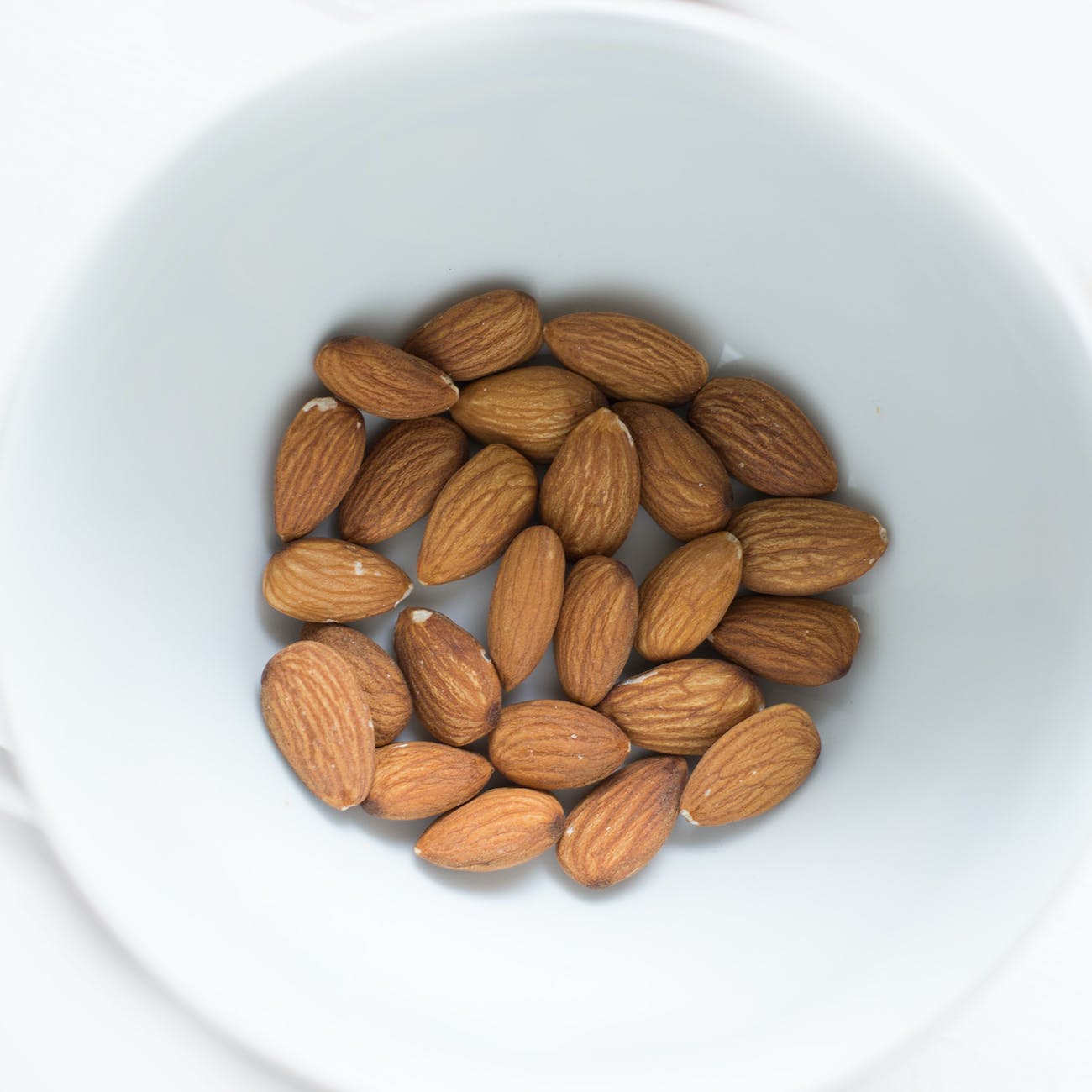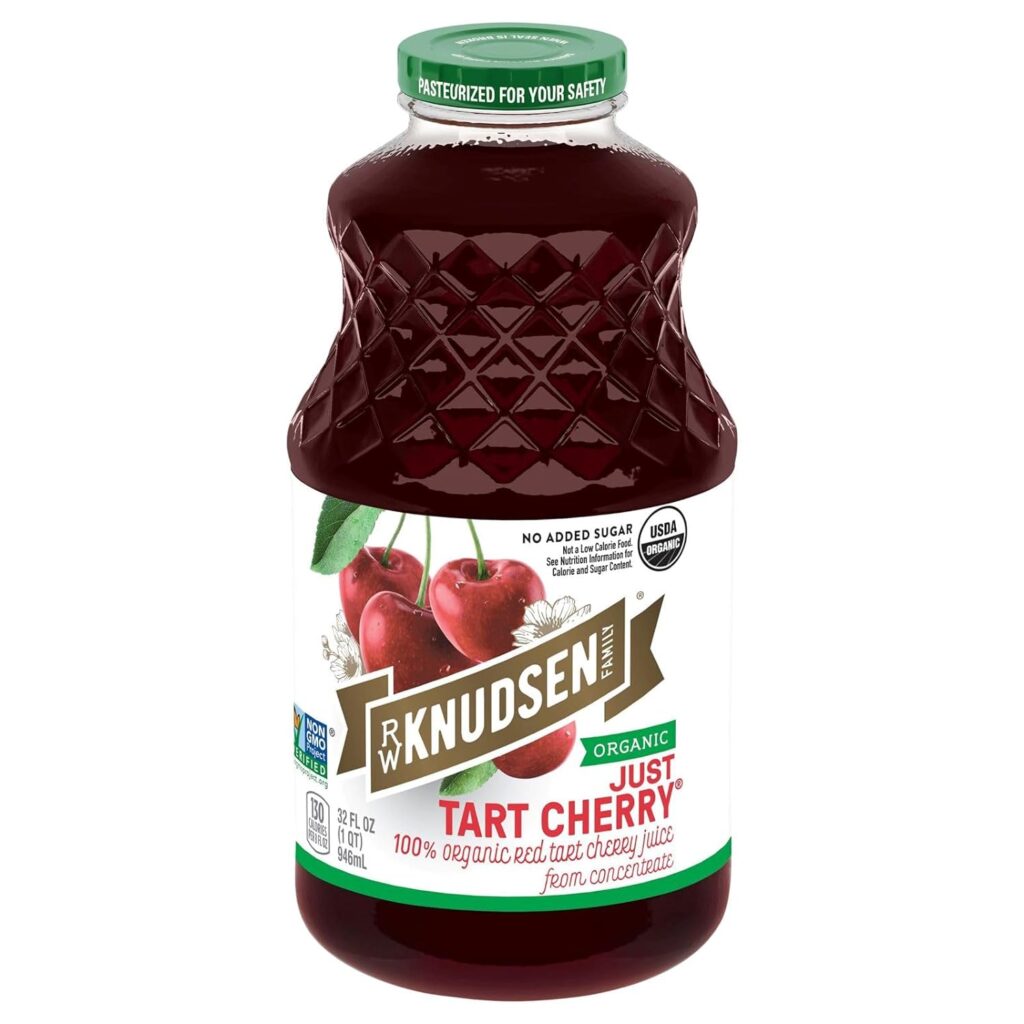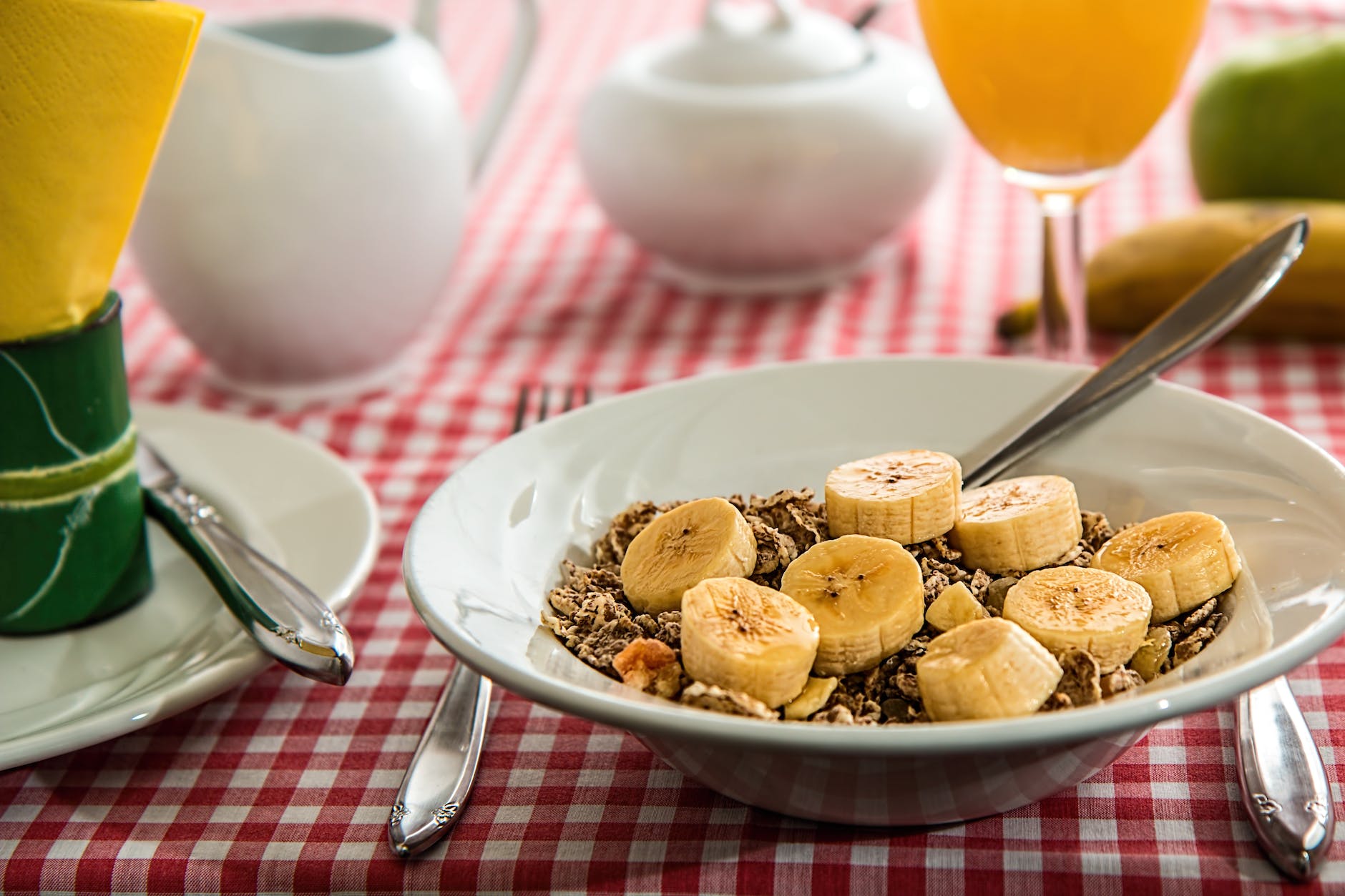We have listed some foods to consume before bed to improve sleep quality.
Look at what you’re consuming if the notion of sleeping causes you nightmares. The most fantastic meals before bedtime can give you a much better night’s sleep.
Getting quality sleep affects your overall health.
It may lower your risk of acquiring some chronic illnesses, maintain the function of your brain, and strengthen your immune system.
It is typically suggested that you obtain 7 – 9 hours of unbroken sleep per night, yet many people need help to get enough.
There are many ways to obtain quality sleep, including dietary adjustments.
1. Almonds
Almonds are nuts that provide some health advantages.
One ounce of roasted almonds contains 23% riboflavin and 18% phosphorus.
One ounce of almonds contains 25% of men’s daily manganese needs and 31% of women’s daily manganese needs.

Some studies found regular consumption of almonds has been related to lowering the risk of type 2 diabetes and heart problems.
This is due to their high levels of fiber, antioxidants, and monounsaturated fats.
Antioxidants may shield your cells from damaging inflammation.
Also, almonds contain melatonin. That is a hormone that adjusts your internal clock and alerts your body to prepare for sleep.
In addition, 1 ounce of almonds has 19% of the daily need for magnesium. Consuming enough magnesium may assist in improving sleep quality.
Almonds may also help lower levels of the stress hormone cortisol, which definitely can disrupt sleep.
A 1-ounce (28-gram) serving of almonds before bed should suffice to see if they affect your sleep quality.
2. Turkey
Turkey is both tasty and healthful.
It’s high in protein, with roasted turkey delivering over 8 grams (28 grams) per ounce. Protein is essential for maintaining muscle and controlling appetite.
Turkey is a good source of phosphorus and riboflavin. It’s high in selenium, with a 3-ounce serving providing 56% of the Daily Value (DV).
It contains the amino acid tryptophan, which boosts the generation of melatonin.
There is evidence that eating protein before bedtime improves sleep quality, including fewer waking up during the night.
3. Chamomile Tea
Chamomile is famous for its flavones. They are a type of antioxidant that reduces inflammation.
Drinking chamomile tea may also enhance your immune system, alleviate anxiety and sadness, and improve skin health. Furthermore, chamomile tea contains some special qualities that may help with sleep quality.
Chamomile tea, in particular, contains apigenin. This antioxidant binds to specific brain receptors that may promote drowsiness and alleviate insomnia.
Individuals who took 250 mg of chamomile extract twice a day for a month were able to fall asleep 15 minutes sooner and had less nighttime wakening than those who did not take the extract.
Those who drank chamomile tea also reported reduced symptoms of depression, which can relate to sleep issues.
Try some chamomile tea before going to bed if you want to increase the quality of sleep.
4. Kiwi
These are low-calorie, high-nutritional-value fruit.
One kiwi has only 42 calories and a lot of nutrients, including 71% of the daily value for vitamin C. It supplies daily vitamin K requirements, an excellent amount of folate, and potassium.
Consuming kiwis may improve your digestive health, reduce inflammation, and lower your cholesterol. This is because kiwi has high levels of fiber and carotenoid antioxidants.
Kiwis may be one of the healthiest and best foods to eat in the evening.
In a 4-week research, 24 people ate two kiwifruits one hour before bedtime every night. Participants fell asleep 42% faster than when they didn’t eat anything before bedtime at the end of the trial.
Furthermore, their capacity to sleep through the night without waking up improved by 5%, while total sleep time increased by 13%.
Kiwis contain serotonin, which is a brain molecule that helps regulate your sleep cycle.
It also has anti-inflammatory antioxidants, such as vitamin C and carotenoids, which may play a role in their sleep-promoting properties.
More studies need to be done, but eating 1-2 medium kiwis before bed wouldn’t hurt.
This post contains referral links for products we love. Staying Fit With Aeran earns a small commission on these links at no cost to you, and the links will always be marked with an asterisk *.
5. Tart Cherry juice *
This juice provides numerous health advantages.
It contains magnesium, potassium, and phosphorus.
An 8-ounce of this juice contains 17% of the daily potassium requirement.
It also contains a lot of antioxidants, such as anthocyanins and flavonols.

Tart cherry juice increases tiredness, and its role in alleviating insomnia has been researched. For these reasons, consuming sour cherry juice before bedtime may help you sleep better.
The high levels of melatonin in tart cherry juice contribute to its sleep-promoting properties.
Adults with insomnia drank 8 ozs of tart cherry juice two times a day for 2 weeks in a small trial. When compared to when they did not drink the juice, they slept 84 minutes longer and reported higher sleep quality.
6. Fatty fish
Salmon, tuna, trout, and mackerel are all extremely nutritious. What distinguishes them from other fish is their high levels of vitamin D.
A 3-ounce (85-gram) salmon contains 570 international units of vitamin D, which is 71% of your daily value. The same portion of farmed rainbow trout contains 81% of your daily value.
Fatty fish are also high in omega-3 fatty acids, notably eicosapentaenoic acid (EPA) and docosahexaenoic acid (DHA).
Both EPA and DHA have been proven to reduce inflammation, and omega-3 fatty acids may help prevent heart disease and improve brain health.
The combination of vitamin D and omega-3 fatty acids found in fatty fish has the potential to improve sleep quality because both have been demonstrated to promote serotonin synthesis.
Males who ate 10.5 ounces of salmon 3 times a week for 6 months fell asleep around 10 minutes faster than males who ate chicken, beef, or pork.
Fish that have greater vitamin D levels which was connected to a considerable improvement in sleep quality.
Eating an ounce or two of fatty fish before bedtime may help you sleep faster and deeper.
7. Walnuts
These nuts have over 19 vitamins and minerals and 2 grams of fiber in a 1-ounce serving. Walnuts have high levels of copper, magnesium, phosphorus, and manganese.
Also, walnuts are high in beneficial fats such as linoleic acid and omega-3 fatty acids. They also have 4.3 grams of protein/ounce, which helps with controlling hunger.
Walnuts may also lower high cholesterol levels, which can promote heart health.
Some researchers say that consuming walnuts enhances sleep quality since they are a good source of melatonin.
They contain alpha-linolenic acid, an omega-3 fatty acid that the body converts to DHA. DHA has been shown to boost serotonin synthesis.
There isn’t much data to back up the assertions that walnuts improve sleep.
Regardless, if you have trouble sleeping, eating some walnuts before bedtime may help.
8. Passionflower Tea *
This herbal tea has traditionally been used to cure a variety of health issues.
It is high in flavonoid antioxidants. Flavonoid antioxidants reduce inflammation, promote immunological function, and lower the risk of heart disease.
In addition, passionflower tea has been examined for its ability to alleviate anxiety.
Apigenin, which is an antioxidant, may be responsible for passionflower’s anxiety-reducing properties. Apigenin has a calming effect on the brain by attaching to specific receptors.

Passionflower may also enhance the production of GABA (gamma-aminobutyric acid). GABA inhibits the action of other brain chemicals called glutamate, which can cause stress.
Because of the relaxing characteristics of passionflower tea, it may be useful to consume it before going to bed.
41 adults participated in a 7-day research, drinking a cup of passionflower tea before bed. When they drank the tea, they rated their sleep quality substantially higher than when they did not drink the tea.
More research is required to discover whether passionflower aids in sleep.
9. White rice
This grain is commonly consumed as a staple food in many nations.
White rice is brown rice that has been stripped of its bran and germ.
Because of that, it contains less antioxidants, minerals, and fiber.
However, white rice still contains a good number of vitamins and minerals.
A 4-ounce (79-gram) portion of white rice has 19% of your daily folate requirements. It also meets 21% of men’s daily thiamine requirements and 22% of women’s daily thiamine requirements.
A serving of 4-ounce (79-gram) long-grain white rice contains 13% of your daily value for manganese.
Four ounces of white rice has 22 grams of carbohydrates. Its high glycemic index (GI) is due to its carbohydrate load and lack of fiber.
Eating foods with a high glycemic index at least 1 hour before bedtime may aid in enhancing the quality of sleep.
A study was done analyzing the sleeping habits of 1,848 adults based on how much rice, bread, or noodles they consumed. People who consumed rice were linked to better sleep than bread or noodles.
Other foods and beverages that may help you sleep
A variety of additional foods and beverages have sleep-inducing qualities. They may, for example, have high levels of nutrients such as tryptophan.
However, there has been limited investigation into their precise effects on sleep in some circumstances.
Dairy goods: Tryptophan is found in dairy products such as cottage cheese, milk, and plain yogurt. Milk has been demonstrated to help older persons sleep better, especially when combined with modest activity.
Bananas: The fruit has a low magnesium content, and banana peels contain tryptophan. Both of these characteristics may aid in getting a good night’s sleep.

Oatmeal: Like rice, oatmeal is strong in carbs with a bit more fiber and has been linked to tiredness when ingested before bed. Furthermore, oats are a known source of melatonin.
To Conclude
Getting enough sleep is critical to your health.
Several foods and beverages may assist in sleeping better. This is due to the presence of sleep-regulating brain chemicals and hormones, including serotonin and melatonin.
Certain foods and beverages have significant levels of magnesium and melatonin, which can help improve sleep, help you fall asleep sooner, or stay asleep longer.
It may be better to consume sleep-enhancing foods and beverages 2 to 3 hours before bedtime to gain the full effects. Eating right before bedtime can create stomach troubles such as acid reflux.
